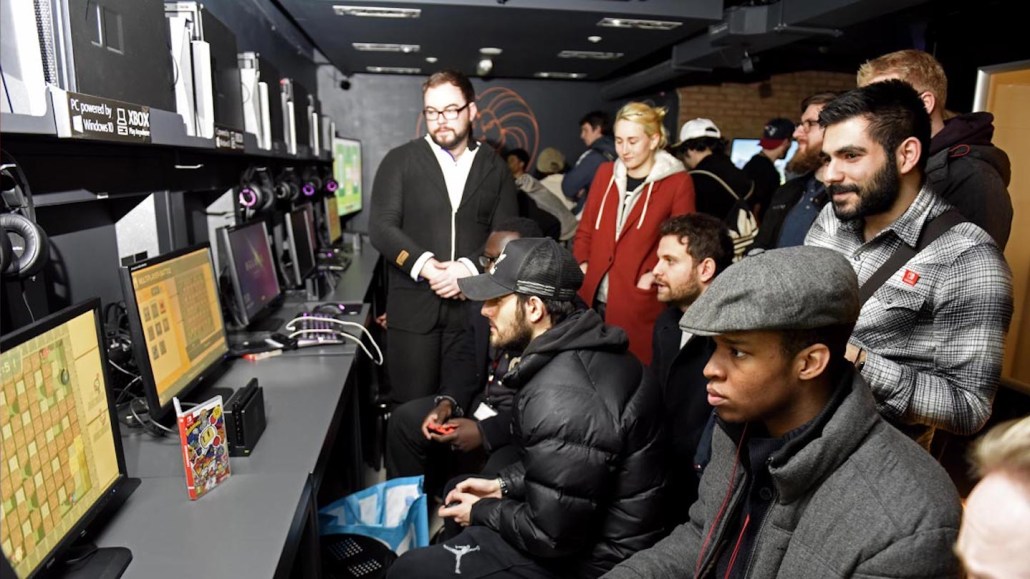Secure your place at the Digiday Publishing Summit in Vail, March 23-25
Game Digital is looking to esports to turn around retail sales

Gamers don’t want to buy games in stores, but they will pay to play games in them, according to retailer Game Digital.
That’s the thinking at the heart of Game Digital’s latest attempt to kick-start its business, which has been hit hard by online competitors and came close to bankruptcy in 2012. The retailer expects sales for the 53 weeks that ended on July 29 to decline 5 percent from £822 million ($1.1 billion) to £780 million ($999 million). But esports is representing a small yet fast-growing part of the business.
Last year, it launched Belong, a section in 18 of its Game Digital stores across the U.K. where gamers can pay to play together, participate in fan events and test new products like virtual reality. Game Digital plans to open up to 20 more such stores by year’s end after seeing how much money it generated in the first half of the year.
Sales from stores with Belong hubs in them jumped 120 percent year over year in the 26 weeks that ended on July 29 to £8.6 million ($11 million), although from a small base. Gamers at those stores are expected to spend on average £384 ($491) in 2017, versus the £191 ($245) that a customer at a regular Game Digital store would spend in the same period, according to the company. Furthermore, 21 percent of the people that visited the stores in the first half of the year were new Game Digital customers.
Having live gaming in stores is a way for Game Digital to sell more merchandise. Gamers who end up paying to play games have an average playing time of over 1.25 hours, the business said.
Game Digital sees its future beyond just selling games, the demand of which is declining. For the 12 weeks that ended on March 12, physical game sales grew 0.5 percent in the U.K., the first upturn since last October, according to Kantar Worldpanel.
To get more gamers into stores, Game Digital wants to build a community around each one. It’s developing a site to show gamers what events its stores host. It’s also creating an in-house content production and broadcast studio to make and distribute content from the stores.
Beyond its stores, events like Insomnia have become important to the bottom line. Ticket sales for the gatherings, which are held in Scotland and Birmingham, England, this year, jumped 49 percent in the first half of 2016. Game Digital plans to bring in over £9 million ($11.5 million) for the full year.
Competitive gaming has gone from split-screen matches to the big money pro tournaments of esports in recent years; gaming expert Newzoo estimates it’ll be worth £1.2 billion ($1.5 billion) by 2020. Game Digital is aiming for the grassroots end of the sport, rather than competing directly with the big professional esports events such as the Electronic Sports World Cup or launching its own branded teams. It sponsors teams that compete at tournaments, but rather than paying them fees, they’re offered merchandise and the chance to compete against some of the world’s best gamers.
More in Media

Urban Outfitters shifts its influencer strategy from reach to participation
Me@UO is Urban Outfitters’ new creator program leverage micro-creators with smaller, engaged communities that are passionate about the brand.

Media Briefing: Without transparency, publishers can’t tell if Google’s Preferred Sources feature benefits them
Six months in, Google’s Preferred Sources promises loyalty-driven visibility, but leaves publishers guessing at the traffic impact.

In Graphic Detail: Publishers chase video podcast growth, but audio still leads
Podcasting may be racing into video, but more listeners still prefer audio — leaving publishers caught between hype and habit.








